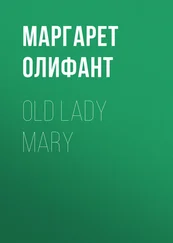Маргарет Олифант - Sir Robert's Fortune
Здесь есть возможность читать онлайн «Маргарет Олифант - Sir Robert's Fortune» — ознакомительный отрывок электронной книги совершенно бесплатно, а после прочтения отрывка купить полную версию. В некоторых случаях можно слушать аудио, скачать через торрент в формате fb2 и присутствует краткое содержание. Издательство: Иностранный паблик, Жанр: foreign_prose, literature_19, foreign_antique, на английском языке. Описание произведения, (предисловие) а так же отзывы посетителей доступны на портале библиотеки ЛибКат.
- Название:Sir Robert's Fortune
- Автор:
- Издательство:Иностранный паблик
- Жанр:
- Год:неизвестен
- ISBN:нет данных
- Рейтинг книги:5 / 5. Голосов: 1
-
Избранное:Добавить в избранное
- Отзывы:
-
Ваша оценка:
- 100
- 1
- 2
- 3
- 4
- 5
Sir Robert's Fortune: краткое содержание, описание и аннотация
Предлагаем к чтению аннотацию, описание, краткое содержание или предисловие (зависит от того, что написал сам автор книги «Sir Robert's Fortune»). Если вы не нашли необходимую информацию о книге — напишите в комментариях, мы постараемся отыскать её.
Sir Robert's Fortune — читать онлайн ознакомительный отрывок
Ниже представлен текст книги, разбитый по страницам. Система сохранения места последней прочитанной страницы, позволяет с удобством читать онлайн бесплатно книгу «Sir Robert's Fortune», без необходимости каждый раз заново искать на чём Вы остановились. Поставьте закладку, и сможете в любой момент перейти на страницу, на которой закончили чтение.
Интервал:
Закладка:
“I think I should have known you anywhere,” said Lily. “You are not changed, not changed a bit; but I am not little Lily any longer. I am a great deal bigger than you.”
“You always were, I think,” said Helen, “though you were only a bairn and me a little, little woman, nearly a woman, when you were here last. Come ben, my dear, come ben and see papa. He does not move about much or he would have come to welcome you. But wait a moment till I get my seam, and till I find my thimble; it’s fallen off my finger in the fulness of my heart, for I could not bide to think about that when I saw it was you. And, oh, stand still, my dear, or you’ll tramp upon it! and it’s my silver thimble and not another nearer than Aberdeen.”
“I’ve got one,” cried Lily, “and you shall have it, Helen, for I fear, I fear it is not so very much use to me.”
“Oh, whisht, my dear. You must not tell me you don’t like your seam. How would the house go on, and what would folk do without somebody to sew? For my part I could not live without my seam. Canny, canny, my bonnie woman, there it is! They are just dreadful things for running into corners—almost as bad as a ring. But there is a mischief about a ring that is not in a thimble,” said Helen, rising, with her soft cheeks flushed, having rescued the errant thimble from the floor.
“And are you always at your seam,” said Lily, “just as you were when I was little, and you used to come to Dalrugas to play?”
“I don’t think you were ever so little as me,” said Helen with her rustic idiom and accent, her low voice and her sweet look, both as fresh as the air upon the moor. She did not reach much higher than Lily’s shoulder. She had the most serene and smiling face, full, one would have said, of genuine ease of heart. Was this so? or was her mind full, as Katrin had said, of unhappy love and anxious thoughts? But it was impossible to believe so, looking at this soft countenance, the mouth which had not a line, and the eyes which had not a care.
Nowadays the humblest dwelling which boasts two rooms to sit in possesses a dining-room and drawing-room, but at that period drawing-rooms were for grand houses only, and the parlor was the name of the family dwelling-place. It was very dingy, if truth must be told. The furniture was of heavy mahogany, with black hair-cloth. Though it was still high summer, there was a fire in the old-fashioned black grate, and close beside, in his black easy chair, was the minister, a heavy old man with a bad leg, who was no longer able to get about, and indeed did very little save criticise the actions of his assistant and successor, a man of new-fangled ways and ideas unlike his own. He had an old plaid over his shoulders, for he was chilly, and a good deal of snuff hanging about the lapels of his coat. His countenance was large and fresh-colored, and his hair white. In those days it was not the fashion to wear a beard.
“So that’s Miss Lily from the town,” he said. “Come away ben, come ben. Set a chair by the fire for the young lady, Eelen, for she’ll be cold coming off the moor. It’s always a cold bit, the moor. Many a cough I’ve catched there when I was more about the countryside than I am now. Old age and a meeserable body are sore hindrances to getting about. Ye know neither of them, my young friend, and I hope you’ll never know.”
“Well, papa, it is to be hoped Lily will live to be old, for most folk desires it,” said Helen. Papaw , a harsh reporter would have considered her to say, but it was not so broad as a w ; it was more like two a’s — papaa —which she really said. She smiled very benignantly upon the old gentleman and the young creature whom he accosted. The name of gout was never mentioned, was, indeed, considered an unholy thing, the product of port-wine and made dishes, and not to be laid to the account of a clergyman. But Mr. Blythe contemplated with emotion, supported on his footstool, the dimensions of a much swollen toe.
“Well,” said he, “I hope she’ll never live to have the rose in her foot, or any other ailment of the kind. And how’s Sir Robert, my dear? Him and me are neighbor-like; there is not very much between us. Is he coming North this year to have a pop at the birds, or is he thinking like me, I wonder, that a good easy chair by the fire is the best thing for an auld man? and a brace of grouse well cooked and laid upon a toast more admirable than any number of them on the moor?”
“I don’t think he is coming for the shooting,” said Lily, doubtful. Sir Robert was in many respects what was then called a dandy, and any thing more unlike the exquisite arrangements for his comfort, carried out by his valet, than the old clergyman’s black cushion and footstool and smouldering fire could not be.
“You’ll have had an illness yourself,” said the minister, “though you do not look like it, I must say. Does she, now, Eelen, with a color like that? But your uncle would have done better, my dear, to take you travelling, or some place where ye would have seen a little society and young persons like yourself, than to send you here. He’ll maybe have forgotten what a quiet place it is, and no fit for the like of you. But I’ll let him know, I’ll let him know as soon as he comes up among us, which no doubt he will soon do now.”
“Now, papa,” said Helen, “you will just let Sir Robert alone, and no plot with him to carry Lily away from me: for I am counting very much upon her for company, and it will do her no harm to get the air of the moor for a while and forget all the dissipations of Edinburgh. You will have to tell me all about them, Lily, for I’m the country mouse that has never been away from home. Eh,” said Helen, “I have no doubt every thing is far grander when you’re far off from it than when you’re near. I dare say you were tired of the Edinburgh parties, and I would just give a great deal to see one of them. And most likely you thought the Tower would be delightful, while we are only thinking how dull it will be for you. That is aye the way; what we have we think little of, and what we have not we desire.”
“I was not tired,” said Lily, “except sometimes of the grand dinners that Uncle Robert is so fond of, and I cannot say that I expected the Tower to be delightful; but you know I have no father of my own, and I must just do what I am told.”
“My dear,” said the old minister, “I see you have a fine judgment; for if you had a father of your own, like Eelen there, you would just turn him round your little finger; and I’m much surprised you don’t do the same, a fine creature like you, with your uncle too.”
“Whisht, papa,” said Helen; “we’ll have in the tea, which you know you’re always fond of to get a cup when you can, and it’ll be a refreshment to Lily after her ride. And in the meantime you can tell her some of your stories to make her laugh, for a laugh’s a fine thing for a young creature whatsoever it’s about, if it’s only havers.”
“Which my auld stories are, ye think?” said the minister. “Go away, go away and mask your tea. Miss Lily and me will get on very well without you. I’ll tell ye no stories. They are all very old, and the most of them are printed. If I were to entertain ye with my anecdotes of auld ministers and beadles and the like, ye would perhaps find them again in a book, and ye would say to yourself, ‘Eh, there’s the story Mr. Blythe told me, as if it was out of his own head,’ and you would never believe in me more. But for all that it’s no test being in a book; most of mine are in books, and yet they are mine, and it was me that put them together all the same. But I have remarked that our own concerns are more interesting to us than the best of stories, and I’m a kind of spiritual father to you, my dear. If I did not christen you, I christened your father. Tell me, now that Eelen’s out of the way, what is it that brought ye here? Is it something about a bonnie lad, my bonnie young lass? for that’s the commonest cause of banishment, and as it cannot be carried out with the young man, it’s the poor wee lassies that have the brunt to bear–”
Читать дальшеИнтервал:
Закладка:
Похожие книги на «Sir Robert's Fortune»
Представляем Вашему вниманию похожие книги на «Sir Robert's Fortune» списком для выбора. Мы отобрали схожую по названию и смыслу литературу в надежде предоставить читателям больше вариантов отыскать новые, интересные, ещё непрочитанные произведения.
Обсуждение, отзывы о книге «Sir Robert's Fortune» и просто собственные мнения читателей. Оставьте ваши комментарии, напишите, что Вы думаете о произведении, его смысле или главных героях. Укажите что конкретно понравилось, а что нет, и почему Вы так считаете.












